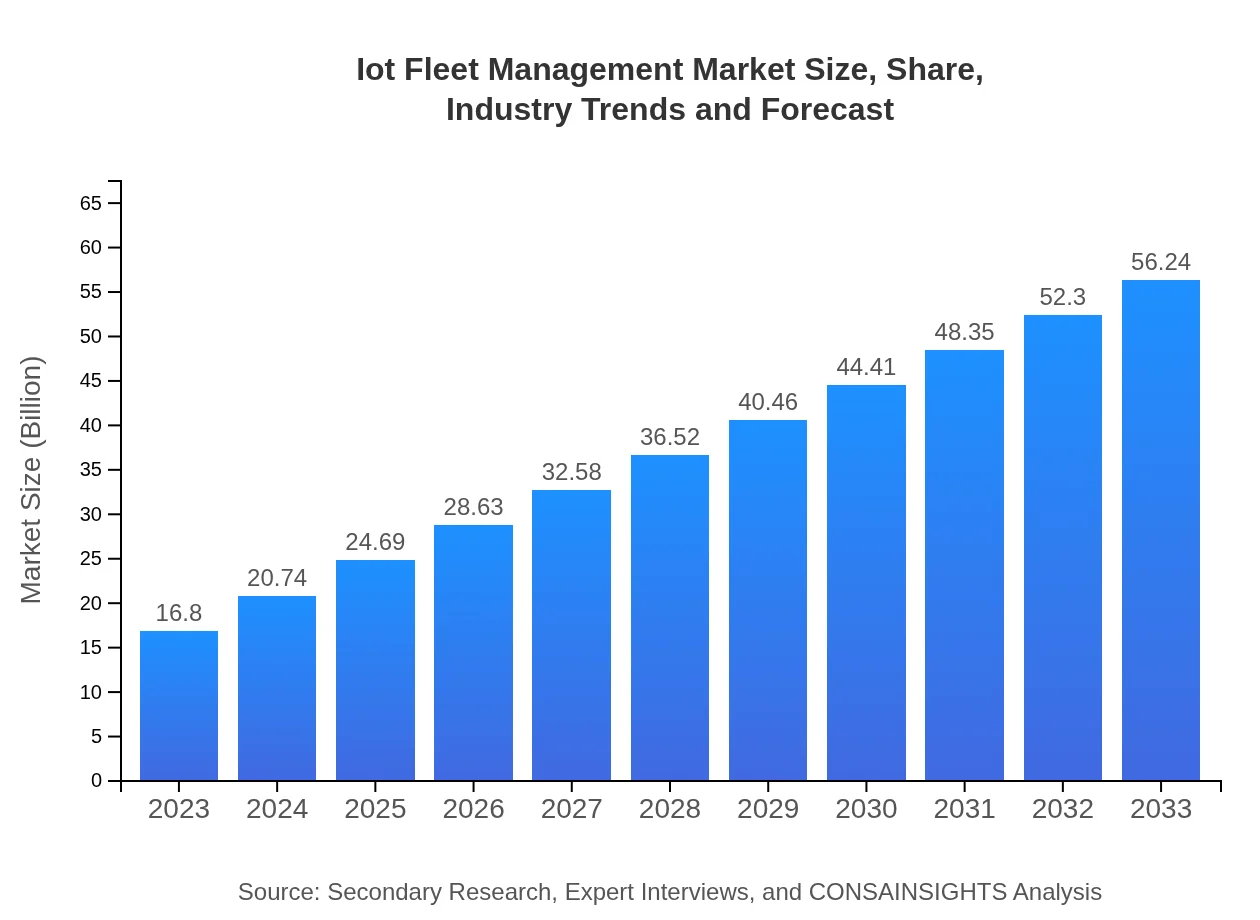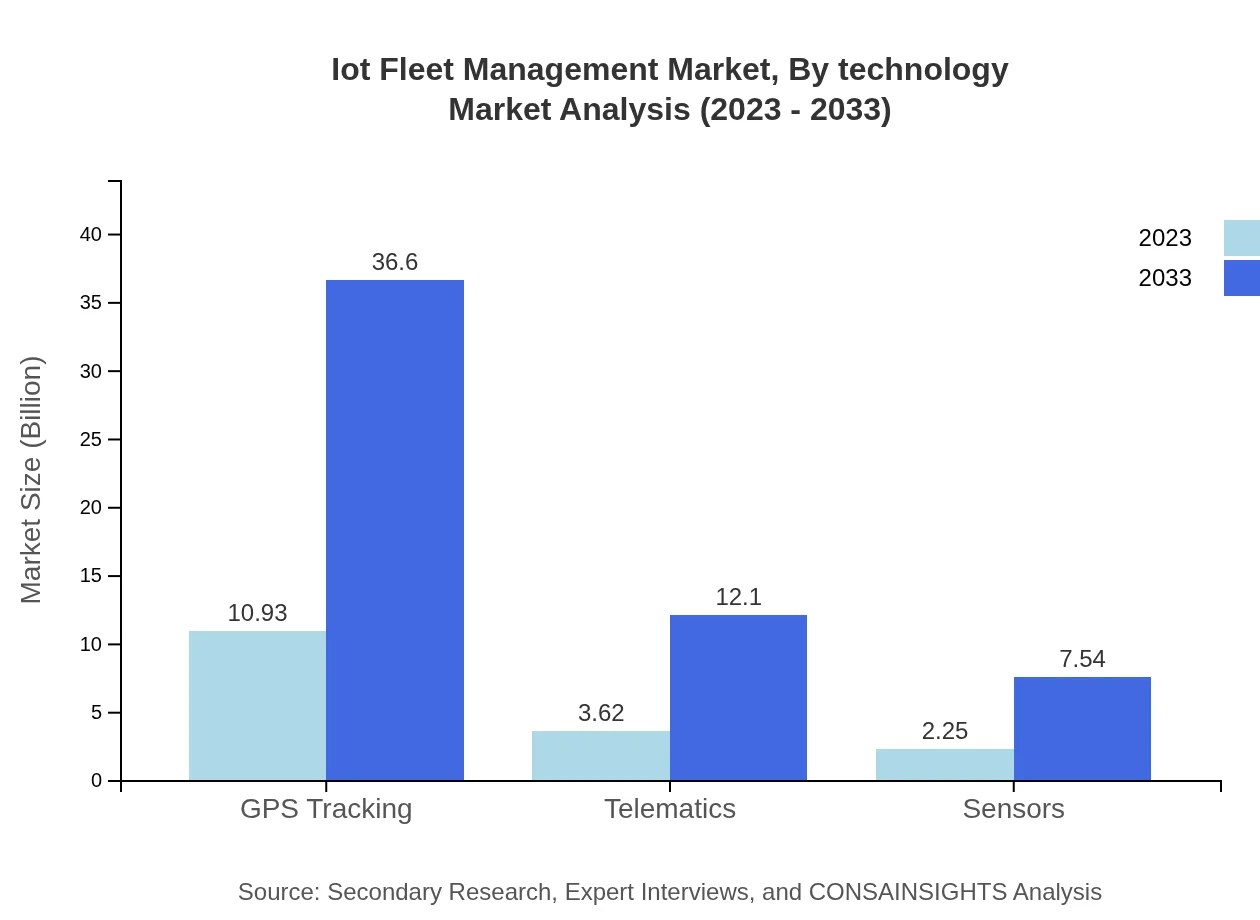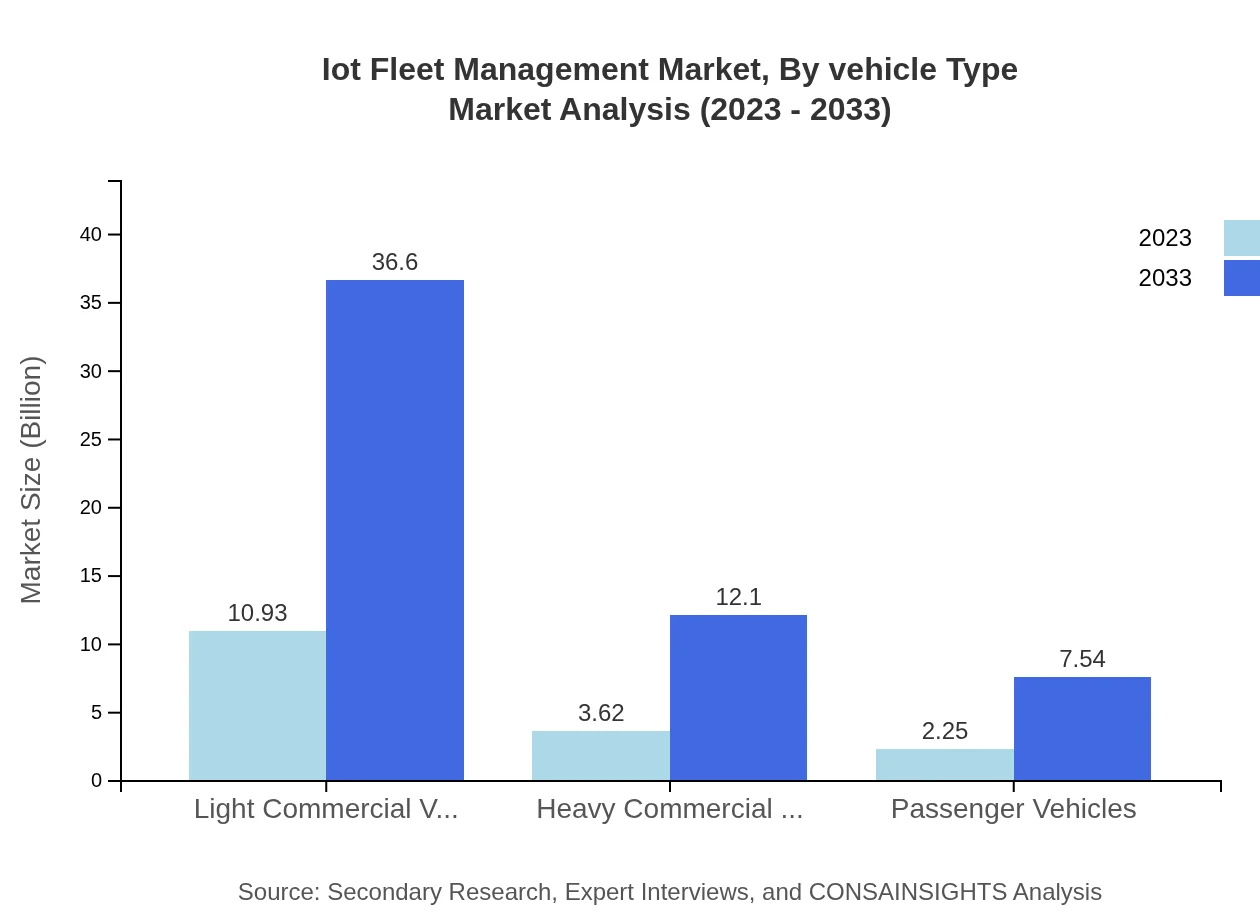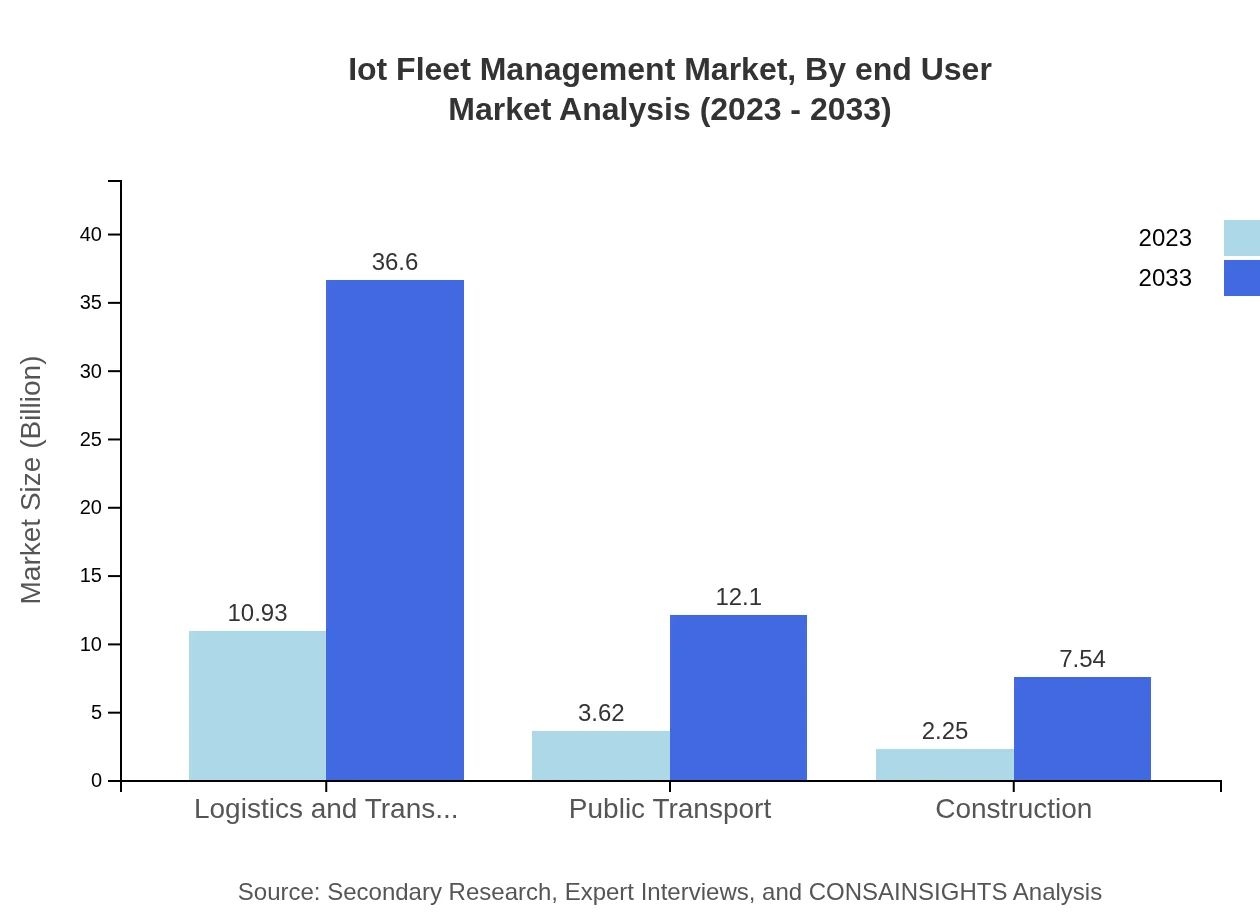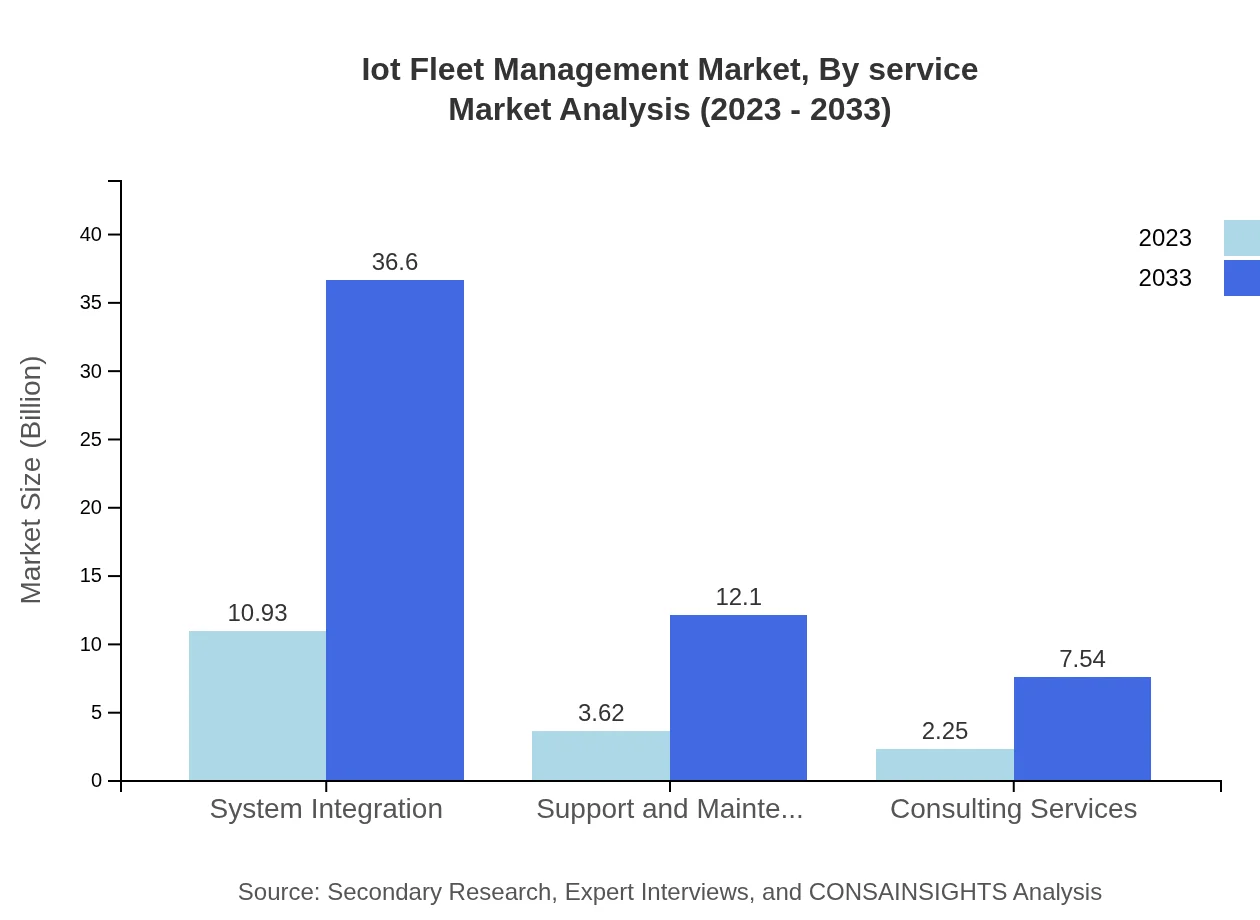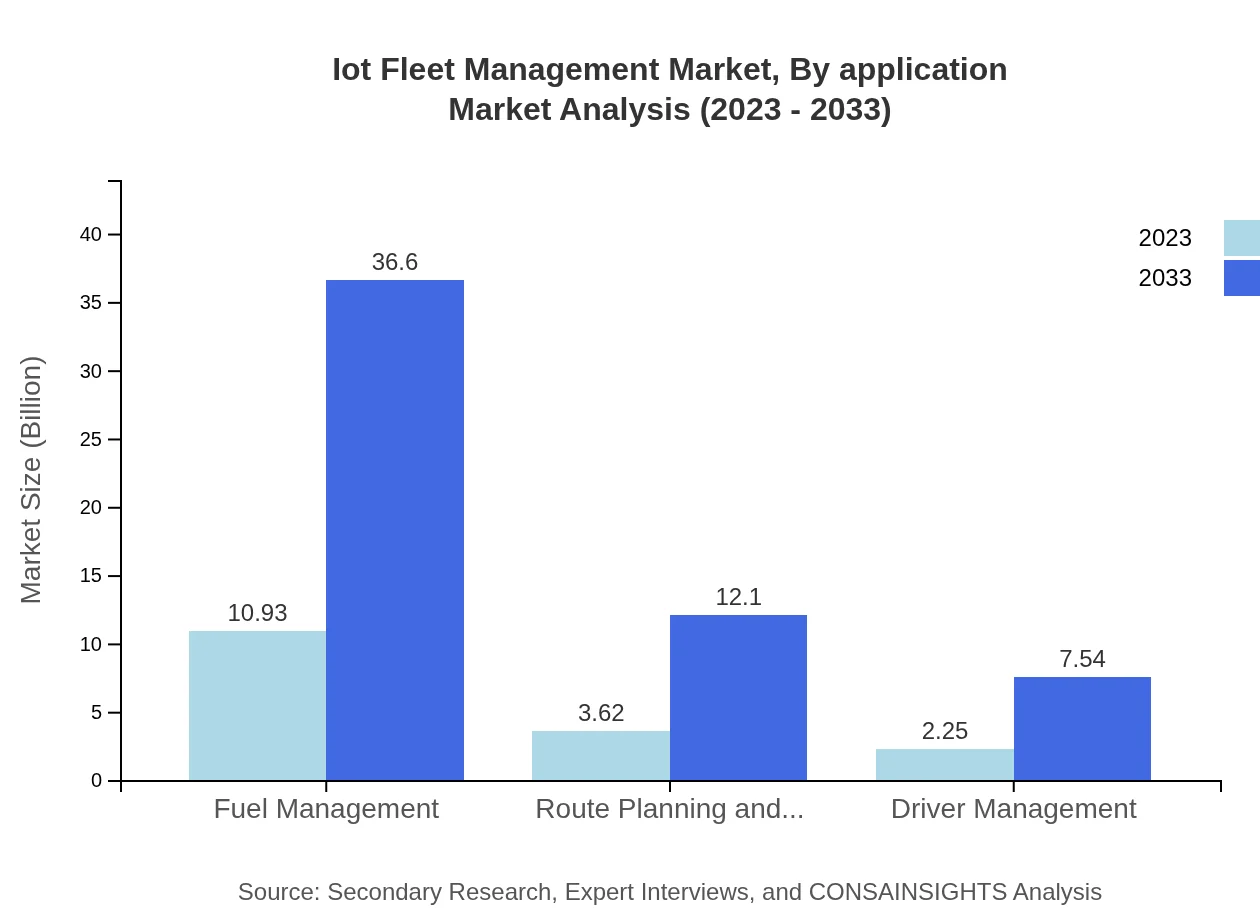Iot Fleet Management Market Report
Published Date: 31 January 2026 | Report Code: iot-fleet-management
Iot Fleet Management Market Size, Share, Industry Trends and Forecast to 2033
This report provides an in-depth analysis of the IoT Fleet Management market, including insights into market trends, regional performance, technology innovations, and future forecasts from 2023 to 2033.
| Metric | Value |
|---|---|
| Study Period | 2023 - 2033 |
| 2023 Market Size | $16.80 Billion |
| CAGR (2023-2033) | 12.3% |
| 2033 Market Size | $56.24 Billion |
| Top Companies | Teletrac Navman, Samsara , Verizon Connect, Geotab, Teletrac Navman |
| Last Modified Date | 31 January 2026 |
IoT Fleet Management Market Overview
Customize Iot Fleet Management Market Report market research report
- ✔ Get in-depth analysis of Iot Fleet Management market size, growth, and forecasts.
- ✔ Understand Iot Fleet Management's regional dynamics and industry-specific trends.
- ✔ Identify potential applications, end-user demand, and growth segments in Iot Fleet Management
What is the Market Size & CAGR of IoT Fleet Management market in 2023?
IoT Fleet Management Industry Analysis
IoT Fleet Management Market Segmentation and Scope
Tell us your focus area and get a customized research report.
IoT Fleet Management Market Analysis Report by Region
Europe Iot Fleet Management Market Report:
The European market is set for substantial growth, projected to increase from $4.93 billion in 2023 to $16.51 billion by 2033. Compliance with stringent regulations regarding emissions and security is further boosting the adoption of IoT fleet management solutions.Asia Pacific Iot Fleet Management Market Report:
The Asia Pacific region is projected to show significant growth, with the market size expected to rise from $3.10 billion in 2023 to $10.39 billion in 2033. Increased manufacturing activities and rising urbanization are driving the demand for efficient fleet management solutions in countries like China and India.North America Iot Fleet Management Market Report:
North America is expected to remain a market leader, with the market size projected to escalate from $6.33 billion in 2023 to $21.20 billion by 2033. Key factors driving this region include the presence of major technology companies and rising investments in smart transportation systems.South America Iot Fleet Management Market Report:
In South America, the IoT Fleet Management market is anticipated to expand from $1.36 billion in 2023 to $4.56 billion in 2033. The growth is primarily due to the rising focus on improving supply chains and logistics efficiencies prompted by market demand.Middle East & Africa Iot Fleet Management Market Report:
In the Middle East and Africa, the market is expected to grow from $1.07 billion in 2023 to $3.58 billion by 2033. Growing investments in smart cities and transportation infrastructure development are key contributors to this upward trend.Tell us your focus area and get a customized research report.
Iot Fleet Management Market Analysis By Technology
The IoT Fleet Management market segments by technology primarily include System Integration, Support and Maintenance, and Consulting Services. System Integration leads the segment with a market size of $10.93 billion in 2023, expected to grow to $36.60 billion by 2033. Support and Maintenance services also show strong growth from $3.62 billion in 2023 to $12.10 billion in 2033, reflecting increased organizational focus on technology optimization.
Iot Fleet Management Market Analysis By Vehicle Type
Market segmentation by vehicle type includes Light Commercial Vehicles, Heavy Commercial Vehicles, and Passenger Vehicles. Light Commercial Vehicles dominate the segment, with sizes projected to grow from $10.93 billion in 2023 to $36.60 billion by 2033, driven by increased logistics and delivery services.
Iot Fleet Management Market Analysis By End User
End-user segmentation includes logistics companies, public transportation services, and construction firms. Logistics is the leading segment, expected to grow significantly due to rising demand for enhanced tracking and operational efficiencies while reducing costs.
Iot Fleet Management Market Analysis By Service
The service segment includes consulting services, logistics and transportation services, and support and maintenance. Consulting Services are predicted to grow from $2.25 billion in 2023 to $7.54 billion by 2033, showcasing the increasing complexity of fleet management and the necessity for expert guidance.
Iot Fleet Management Market Analysis By Application
Application segmentation comprises GPS Tracking, Telematics, and Route Planning and Optimization. GPS Tracking is expected to comprise a substantial market share, supported by growing telematics adoption in various sectors to improve fleet efficiencies.
IoT Fleet Management Market Trends and Future Forecast
Tell us your focus area and get a customized research report.
Global Market Leaders and Top Companies in IoT Fleet Management Industry
Teletrac Navman:
A top provider of fleet management solutions specializing in GPS tracking and telematics, enhancing business fleet operations.Samsara :
A leading IoT solutions provider delivering a data platform that simplifies the fleet management process through real-time insights.Verizon Connect:
Offers integrated fleet management software solutions providing GPS tracking and advanced analytics for fleet optimization.Geotab:
Known for its innovative telematics solutions, Geotab provides extensive analysis and insights to improve fleet performance.Teletrac Navman:
An established player known for customizable fleet management solutions that optimize transportation and logistics services.We're grateful to work with incredible clients.









FAQs
What is the market size of IoT Fleet Management?
The IoT Fleet Management market is projected to reach $16.8 billion by 2033, growing at a CAGR of 12.3%. This highlights a significant expansion in the adoption of IoT technologies across fleet management sectors.
What are the key market players or companies in the IoT Fleet Management industry?
Key players in the IoT Fleet Management industry include established tech giants and innovative startups. Their contributions in software development, hardware integration, and IoT solutions enhance fleet efficiency and operational management.
What are the primary factors driving the growth in the IoT Fleet Management industry?
The growth of the IoT Fleet Management industry is driven by advancements in IoT technologies, increasing demand for real-time data analytics, enhanced fuel efficiency, and regulatory compliance. These factors contribute to the scaling of operations across various sectors.
Which region is the fastest Growing in the IoT Fleet Management?
The North American region is the fastest-growing market for IoT Fleet Management, expanding from $6.33 billion in 2023 to an estimated $21.20 billion by 2033. This growth reflects the region's rapid adoption of advanced fleet technologies.
Does ConsaInsights provide customized market report data for the IoT Fleet Management industry?
Yes, ConsaInsights offers customized market report data tailored to client needs within the IoT Fleet Management sector, ensuring detailed insights according to specific requirements and industry dynamics.
What deliverables can I expect from this IoT Fleet Management market research project?
Anticipated deliverables from the IoT Fleet Management market research include detailed market analysis, competitive landscape assessment, regional insights, and segmented data focusing on key drivers, barriers, and future trends.
What are the market trends of IoT Fleet Management?
Emerging trends in IoT Fleet Management include the integration of AI for predictive analytics, increased utilization of electric vehicles, and enhanced focus on sustainability, reshaping how fleet managers optimize operations and reduce costs.

